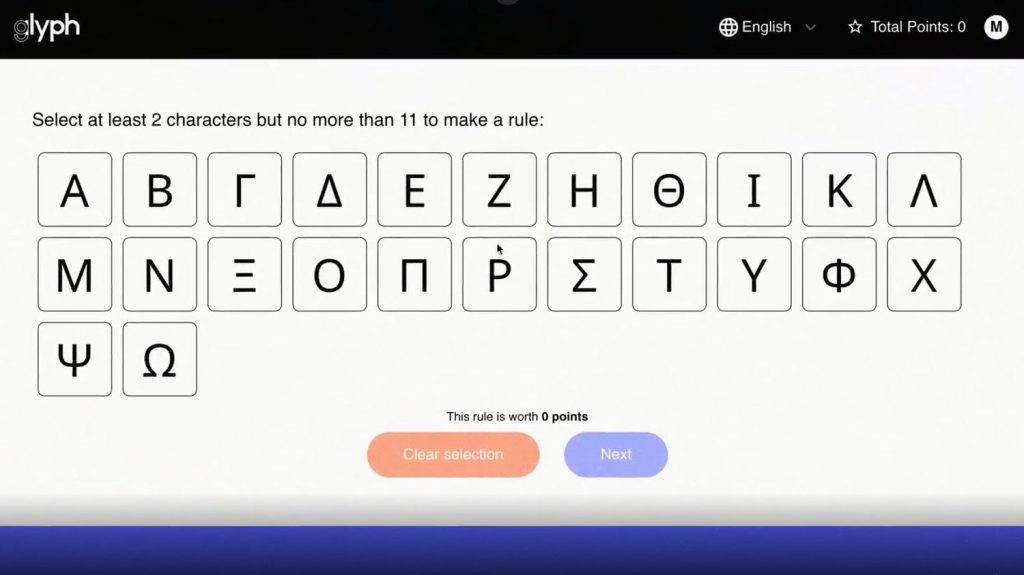The researchers propose to develop knowledge through the game, in particular the French who belong to the National Center for Scientific Research (CNRS). They have just put together an online program to compare writing systems around the world, which can be accessed in a fun way. infographicthat is its name, and thus it is a participatory science video game.
The principle is simple: you notice on the screen an alphabet or a list of graphic characters that you know or not. You must then define the rules that classify these icons. For example: In our alphabet, the design of T, H, and L includes the right angle. Can be base ranking. Obviously, the more letters or symbols the rule relates to, the more points you earn. And if no one before you made this rule, that’s a bonus!
The goal is to explore the diversity of letterforms in the writing system around the world.Explains Olivier Morin, researcher at the National Center for Scientific Research at the Paris University of Sciences and Letters, currently on loan to the Max Planck Institute in Germany. “There is relatively little research on the shape of letters compared to sounds and phonology. In this area, there has been very strong work a hundred years ago. On the shape of letters, on the other hand, there are some targeted studies, for example on the development of lowercase letters in the eighth century, but there is no general theoretical comparative approach.
The desired goal is infographic Thus it is to use collective intelligence and leave as much freedom and exposure to players as possible to create their own classification. “They can just decide that their rule of thumb is that some messages look sad and some don’t, as long as they are consistent and can be reproduced. And if others agree with them, we can validate them and include them in our rating.”says Oliver Morin.
The researchers give themselves six months to collect as many bases as possible, which will then be studied and sorted using algorithms. This will make it possible to extract the most structuring principles for the successful classification of these writings, such as birds or trees. Ultimately, the researchers want to be able to answer a certain number of questions such as those quoted by Olivier Morin: “Can we guess the sound that letters encode by just looking at them? For example, we can ask if vowels are more similar to each other than to consonants.”
For players, there is nothing else to gain but the pleasure of participating in the progress of science. The game is obviously free to play, all you have to do is Press here.

“Music guru. Incurable web practitioner. Thinker. Lifelong zombie junkie. Tv buff. Typical organizer. Evil beer scholar.”






More Stories
A large manufacturing project awaits space in the industrial zone
According to science, here are officially the two most beautiful first names in the world
Green space, 100% pedestrianized: DIX30 reinvents itself